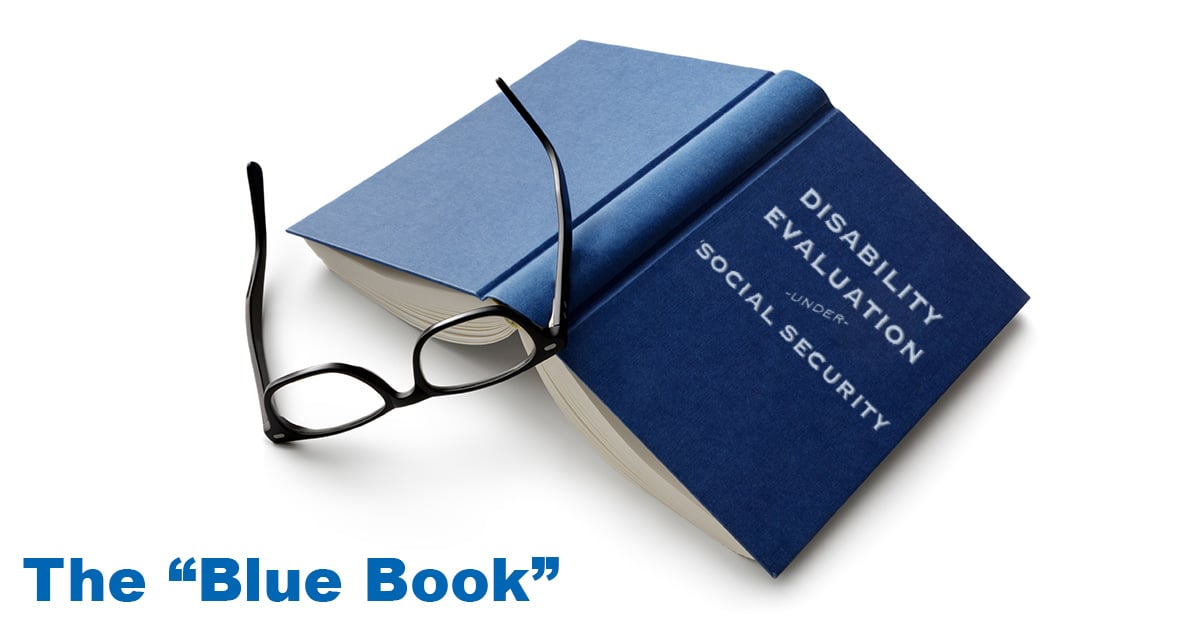Options For Submitting Records:
Secure Web SiteTransfer records through the Social Security Administration – SSA Electronic Services secure web site using your existing Internet connection. The only software needed is a Web browser. You type in a small amount of case information from the DDS request letter, then attach your electronic data — scanned paper records, a report generated by your electronic records system, or a report typed in your favorite word processor. File types accepted: .wpd, .doc, .jpg, .bmp, .txt, .xls, .pdf, .tif, .tiff and .zip files that contain any of these file types. For a DEMO of this site, please visit:
Fax – Use your office fax to send records any time, day or night. Fax software programs may also be used if you can make the first page of the fax the DDDS bar coded cover sheet letter. The bar-coded cover sheet must always be page one. The faxes are digitized for claims processing.
OLYMPIA DDS TOLL FREE FAX: 1-866-324-3313SEATTLE DDS TOLL FREE FAX: 1-866-625-3815SPOKANE DDS TOLL FREE FAX: 1-866-478-0546
For more information about submitting your records electronically, or to obtain a PIN and Password to use the secure web site, please contact Baron Wise, Rhodesia Mitchell, Teresa Bracy, Uyen Kashani, or Tetyce Capshaw on the DDS Professional Relations Staff.
Listing 500 Digestive System Disorders
Digestive System Disorders specifically refer to disabilities that affect your digestive tract. While there are many digestive orders that are listed in this section that can qualify, there is a very specific set of requirements and a complex set of medical criteria that you must meet in order to receive benefits for this category. Some of the more common conditions that qualify for this category are Chronic Liver Disease, Crohns Disease, Liver Transplants, Hepatitis, Inflammatory Bowel Disease as well as Gastrointestinal Hemorrhaging that requires blood transfusions. View full Blue Book List here
Congenital Disorders That Affect Multiple Body Systems
Impairments in this section fall into two categories: Non-mosaic Downs Syndrome and all other conditions that affect multiple body systems. Non-Mosaic Down Syndrome is Down syndrome, in which all of the bodys cells are affected and can cause impairments in vision, hearing, the heart and more.
Other conditions that affect multiple body systems are congenital disorders that cause deviation or interruption to the normal function or development of the body. Other recognized conditions that affect multiple body systems include Caudal Regression syndrome and Fragile X syndrome.
Don’t Miss: What Can You Earn On Social Security
What Medical Evidence Is Necessary For An Ssd Application
While examiners work according to the list of impairments, you must be able to demonstrate that you have a medically determinable condition backed by objective medical data and laboratory findings .
Moreover, examiners will look to whether you have limitations with your daily functioning walking, bending, lifting, balancing. The SSA will rely on the medical records of your treating physician as well as the notes of doctors who perform consultative exams. Ultimately, your doctor must be able to show why you are disabled and how your medical condition limits your daily activities.
If your medical condition does not meet the criteria of the Blue Book, you may still be eligible for disability benefits if you can demonstrate that your condition is medically equivalent to a listed impairment. While a consultative medical or psychological exam will play a key role in determining equivalence at the application stage, a disability appeal or hearing will require additional medical evidence.
Finally, the Blue Book is not a comprehensive listing of all medical and psychological conditions. If your condition limits your functioning too much for you to perform the same or any other work, you may still qualify for benefits.
Why Choose Disability Attorneys of Arizona
How Can I Know If I Might Be Eligible For Snap

To find out if you may be eligible for SNAP Benefits, visit myBenefits.ny.gov and click on Am I Eligible? to use the SNAP pre-screening eligibility tool. Please note: The pre-screening tool is not an application for SNAP. The tool will look at the information you provided to see if you might be able to get help with buying food and other services. You’ll have to apply for the programs listed to get a final decision about benefits, and information will be provided to let you know how to do that. Keep in mind that you always have the right to apply for these benefits.
In New York State, the SNAP Program now allows you to have more money in a checking or savings account, or even a retirement account, without affecting your eligibility for SNAP benefits. As of January 1, 2008, most households applying for SNAP benefits no longer have to pass a savings/resource test in order to get SNAP benefits. This means having money in a savings, checking or retirement account, or having other resources, will not keep you from being eligible for SNAP benefits, as long as you meet the income guidelines.
Don’t Miss: What Is 60 Percent Va Disability
What Conditions Automatically Qualify You For Ssdi
Some conditions automatically qualify for disability benefits if you have a confirmed diagnosis. The Compassionate Allowances List Acute leukemia. Lou Gehrigs disease Stage IV breast cancer. Inflammatory breast cancer. Gallbladder cancer. Early-onset Alzheimers disease. Small cell lung cancer. Hepatocellular carcinoma.
Why Do I Need A Harrisburg Social Security Attorney
Even though the SSDI process is a matter of completely and filing forms and following the SSAs instructions, the process of filing and qualifying for Social Security disability benefits can be complicated and frustrating. The smallest mistake could result in a costly delay or denial of benefits. When the SSA denies a claim, an applicant can appeal the decision.
Contact the experienced Harrisburg Social Security lawyers of Handler, Henning & Rosenberg LLC for a free consultation. Our firm has helped Harrisburg and the surrounding areas since 1922, and were ready to be the advocates that you deserve right now. We know how important SSDI benefits are for those who need them and are proud each time were able to make a difference for a client.
Your consultation is free and confidential when you call us right now at 498-3023.
Categories
Read Also: Crdp Calculator 2015
Don’t Miss: Can You Get Disability For Arthritis In Your Feet
Does Your Condition Equal A Listing
If your impairment doesn’t match the requirements of the listing, the disability claims examiner will determine if your impairments can be considered equivalent to a similar listing, in terms of severity. The SSA allows you to “equal” a listing because it can’t include every form or variant of a severe disability in its impairment listings. The SSA also recognizes that there are various ways to diagnose and document the same illness. For instance, the listing may require a specific result on a specific lab test, and you weren’t given that test, but you did take a test that shows the same results as the test required by the listing.
Another way to equal a listing is by having a combination of impairments that by themselves are not severe enough to meet a specific listing, but combined, their severity equals that of a listed impairment. If the SSA says your impairments are equally as severe as those in the listings, you will be granted disability benefits. If you have to appeal an initial denial of benefits, and you want to argue that your condition is equal to a listed impairment, you would probably need a disability lawyer to argue your case.
For more information, see our article on how to equal a disability listing.
Listing 1100 Neurological Disorders
When we hear the word Neurological we often think of the brain, however, in this category the disorder can occur anywhere in the nervous system. Disorders such as Parkinsons Disease, Multiple Sclerosis, ALS and other nerve-based diseases are common conditions that are approved for benefits by the SSA. This category also includes Epilepsy, Cerebral Palsy and Muscular Dystrophy and it will be evaluated on how severe the disorder is and how often it requires medical attention for treatment and management. View full Blue Book List here
Also Check: How Is Disability Calculated In California
Listing 1000 Congenital Disorders That Affect Multiple Body Systems
This category refers to non-mosaic Down syndrome. Non-mosaic Down syndrome is a genetic disorder in which a person has 3 copies of chromosome 21 in all of their cells and virtually all people with non-mosaic Down syndrome have physical deformities, delayed physical development and/or intellectual disability. View full Blue Book List here
If Your Medical Condition Matches A Listing
If you find your disability in the list of conditions, your next step is to find out if you meet the complex criteria that qualify you for automatic benefits. The requirements are very specific a doctor or Disability lawyer may be required to help you wade through and determine if youre eligible for benefits.
If you havent received the laboratory or clinical tests required by the listing, you should ask your doctor to conduct them and provide medical source statements to the SSA. If youd rather wait for the SSA to conduct a consultative exam, you can do that instead, but it lengthens the amount of time needed to make a decision on your claim and without adequate medical records, you may be denied benefits.
Recommended Reading: How Much Does Ca Sdi Pay
Listing 700 Hematological Disorders
Hematological Disorders refer to disorders that affect your blood. Some disorders include blood diseases such as anemia and hemophilia. This category also includes circulatory problems such as Raynauds Disease and Chronic Venous Insufficiency , as well as some conditions that affect the lymph nodes. View full Blue Book List here
How Can You Get Help With The Blue Book

Since the Blue Book contains a lot of complex information about disabilities and their criteria, it can be difficult to decipher. If you want to understand the terms of the Blue Book better, you can consult with a disability advocate also, a physician or medical professional or Social Security representative may be able to help you understand it.
Before filing a claim, we recommend you consult with a disability advocate so that they can help you to get the appropriate medical records to support your claim. An advocate can also help you to understand the terms and requirements of the listings.
Recommended Reading: Va 90 Disability
What Are The Major Body Systems Covered By The Blue Book
The Blue Book is organized into two main parts. Part A describes the requirements for evaluating impairments in adults age 18 and over. Part B describes the requirements for evaluating impairments in children under the age of 18. This article describes the major body systems under the listings for adults:
Musculoskeletal System impairments include major dysfunction of a joint, reconstructive surgery of a major weight-bearing joint, spinal disorders, amputation, fracture of the femur, tibia, pelvis, or tarsal bones, fracture of an upper extremity, and soft tissue injury such as burns.
Special Senses and Speech impairments include loss of visual acuity, contraction of the visual field in the better eye, loss of visual efficiency, disturbance of labyrinthine-vestibular function, loss of speech, and loss of hearing.
Respiratory System impairments include chronic pulmonary insufficiency, asthma, cystic fibrosis, pneumoconiosis, bronchiectasis, chronic persistent infections of the lung, sleep-related breathing disorders, and lung transplants.
Cardiovascular System impairments include chronic heart failure, ischemic heart disease, recurrent arrhythmias, symptomatic congenital heart disease, heart transplant, aneurysm of aorta or major branches, chronic venous insufficiency, and peripheral arterial disease.
Genitourinary Impairments refer to chronic renal disease.
Impairments that Affect Multiple Body Systems refer to non-mosaic Down syndrome.
Listing 1300 Malignant Neoplastic Disease
While many different types of cancer will qualify you to receive benefits, your approval process for benefits will depend on the type, stage, location and how well your cancer is responding to, or expected to, respond to treatment. The SSA will also look at how long you are expected to be receiving treatment and if you would be able to return to work. Some of the common cancers that will qualify for SSD benefits are Leukemia, Lung Cancer, Colon Cancer, and Cervical Cancer, just to name a few. View full Blue Book List here
You May Like: How Much Does Sdi Pay In California
Do You Pay Taxes On Disability Checks
The majority of both SSDI and SSI benefits are not taxable . Whether filing your taxes individually or with your spouse, the following income limits result in about half of your benefits being taxed : Over $25,000 and less than $34,000 for an individual. A combined income over $32,000 if married and filing jointly.
Please Answer A Few Questions To Help Us Determine Your Eligibility
The Social Security Administration uses the Blue Book to determine whether someone has a disability that prevents them from working. At step three of the five-part disability evaluation process, the SSA reviews an applicant’s medical records to decide whether his or her medical condition meets the requirements of a disability listing found in the Blue Book . If so, the applicant will be found disabled.
The Blue Book covers both physical and mental impairments, and it discusses many serious diseases that can be disabling. Part A and Part B each have 14 categories of disability listings.
Read Also: Va Gaf Score Chart
Can An Application Be Mailed To Me
Yes, to request a mailed application you should call or write your local Department of Social Services office or, in New York City, your local SNAP Center.
Also, you may download and print a SNAP application from this website or ask that someone pick one up for you from your local County Department of Social Service office or center.
Why Your Herniated Disc Disability May Have Been Denied
Herniated discs occur when the softened center of a spinal disc pushes through a crack in its casing. This disorder, which occurs in over 3 million Americans per year, can range in severity from unnoticeable to cripplingly painful. Unfortunately, this variance can make it difficult to get disability benefits, especially upon initial application.
If your herniated disc disability application was denied, it is important to stay vigilant. Continue below to learn why your case may have been denied and how you can get started on the next step in the process.
Read Also: Va Claims Insider Bbb
You May Like: Filing For Disability In Il
Listing 1200 Mental Disorders
This category for Social Security Disability Benefits covers many conditions and is broken down into 11 sub-categories. All of the categories are evaluated by a complex system to determine the severity of the mental disability and how greatly it impacts the persons life, education, social interactions, and ability to perform work functions in a variety of settings. The mental disorders that are included in the 11 subcategories for this category are:
What Conditions Qualify For Disability // 2021

Millions of Americans receive disability benefits from the Social Security Administration each month, and many more submit new applications every day. Disability benefit recipients have medical conditions that prevent them from being able to work and perform meaningful, gainful activity. The Social Security Administration has strict rules about what types of conditions qualify for Social Security disability benefits. Do you have an impairment and you are wondering whether you might qualify for benefits? Keep reading as we explain what conditions qualify for benefits as well as how you can qualify even if you do not have a specific condition listed in the SSA Blue Book.
Recommended Reading: Did Joe Cocker Have A Disability
Listing 100 Musculoskeletal System Disorders
Musculoskeletal system disorders are disabilities that affect your spine and/or joints that interfere very seriously with an individuals ability to independently sustain or complete work-related activities. Some of these disorders include back injuries, Osteoarthritis, Scoliosis, Amputation, and Degenerative Disc Disease. View full Blue Book List here
Ssa Blue Book Listings
With such a wide variation of disorders and conditions, the Social Security Administration created a guide for their own representatives and other physicians to determine if an applicant potentially qualifies for disability benefits. This guide, called the Blue Book, separates disabling conditions into different categories and lists the specifications needed for each condition to qualify for disability benefits.
There are two parts to the book: Part A is used to evaluate Adults and Part B is used to evaluate children . The SSA separated the book into two parts because some illnesses affect children much differently than adults and thus need to be evaluated under different conditions.
Both parts divide general impairments into categories where each category lays out the restrictions and specifications for a condition to qualify for benefits.
Listed below are the main 14 categories with the additional 15th category at the bottom for part B.
Also Check: Nexus Letter For Degenerative Disc Disease
Disability Determination Services Medical Provider Information
Information For Health Care Providers
In about 70% of all cases, the information from treating sources provides enough documentation for the final determination of disability. In the remaining cases, a consultative examination – CE is purchased by the DDS. Currently the DDS has approximately 250 medical, psychiatric and psychological doctors who perform consultative evaluations for our office.
If you are a licensed psychologist, MD, DO, audiometrist, speech & language pathologist, vocational specialist or OT/PT that does cognitive and/or motor testing for young children, you may be able to perform consultative examinations for our program. All interested examiners must submit a Request for Qualification – RFQ to be considered for a contract with our agency. RFQs and information about examination requirements for DDS CE’s can be downloaded from the DSHS Procurements website.
